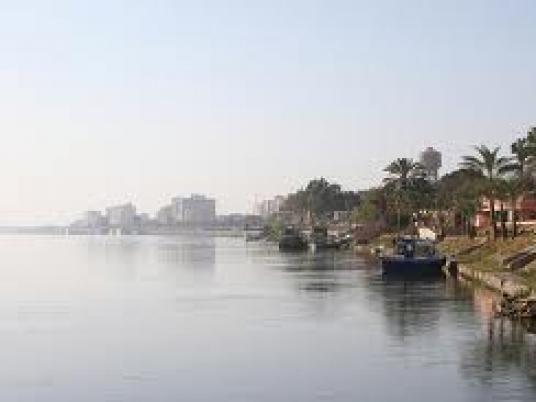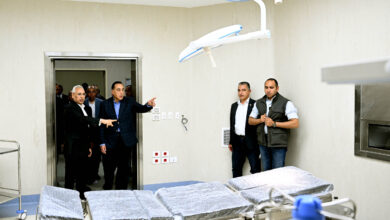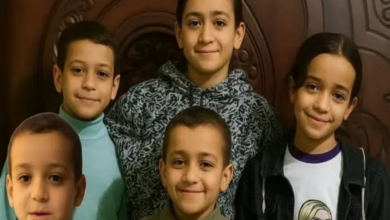
An Egyptian governorate cut off for years from the tourist trade by an Islamist insurgency is looking to a new president and the lure of an ancient heretical pharaoh for a better future.
Egyptians vote on 16-17 June in the concluding stage of an election to replace Hosni Mubarak, Egypt's leader for three decades who was ousted last year in a popular uprising.
"We want justice in the distribution of wealth, education and health. Southern Egypt is deprived, deprived, deprived," said Mohamed Bedawi, 54, an employee at Minya University, after casting his vote in the election's first round on 24 May.
For many people in this city 250 km south of Cairo, any leader would do more for the economy than Mubarak, whose local legacy is a region with few factories, no commercial airline service and a feeble health system.
Where tourism flourished in the cruise ships that plied the Nile between Luxor and Aswan, few visitors came to Minya, scared off by a revolt by Islamic extremists in the 1990s which killed more than 1,000 people.
The government prohibited tourist cruises in the region for fear of an attack that would scare away tourists from all of Egypt. In 1997, the industry was set back nationwide after 58 foreigners were massacred in Luxor.
The few foreigners intrepid enough to make the journey to the area around Minya were obliged to travel in convoys escorted by armed police.
But things may be looking up.
A few weeks ago, Egypt's military-backed transition government began allowing tourist cruise boats to set out for Minya from Cairo for the first time in years. And the prospect of a new government within weeks has raised hopes that neglected roads, schools and hospitals might be overhauled to foster a viable tourist industry.
Rebel pharaoh
Pharaoh Akhnaten renounced Egypt's traditional gods to worship Aten, the giver of life, and built a sprawling new capital in about 1350 B.C. on the Nile 60 km south of modern Minya, well away from the old capital at Luxor.
Aten was represented in carved reliefs by the disc of the sun, its rays stretching down to those who worshipped to bathe them in life and power.
The new religion did not last long. When Akhnaten died, his son Tutankhamun restored the older gods such as Amun and Ra. Egypt's pharaonic generals later seized power, founding a whole new dynasty.
The remains and tombs of the short-lived capital still can be seen, along with Greek, Christian and Islamic monuments.
"We don't get the number of tourists to match Minya's position," said Bahaa Fekry, who was the Minya chairman of Mubarak's National Democratic Party and today holds no official post.
Foreigners flocked instead to Egypt's Red Sea beaches and to Aswan and Luxor. Tourism — which contributes about 10 percent to the country's economy — has been hit badly by last year's popular revolt, which flashed images of street battles and burning buildings around the world.
Visitor numbers were still down 25 percent in the first three months of 2012 from the same period a year earlier, when the uprising took place.
Wealth
Arriving in Minya, visitors will find dramatic limestone cliffs towering above a thin forest of date palms.
In the city itself, stately yet decaying villas and apartments are evidence of the area's wealth during the monarchy that the military overthrew in 1952.
Tour firms are already selling berths for 14-day trips, but the historic route's popularity seems unlikely to recover fully until the insecurity and political turmoil of the Arab Spring uprising ends.
Fekry said the Nile route could have been reopened years ago but was a victim of Mubarak's stultifying government: "I don't think there's been a security problem lately but they felt it was easier to do nothing. It was lethargy."
The presidential run-off vote will pit former military official and Mubarak ally Ahmed Shafiq against the Muslim Brotherhood's Mohamed Morsy.
Supporters of both candidates hope the winner will move fast to lure back visitors to the Minya region.
Diaa Maghazi, head of the Brotherhood in Minya, said that if the Brotherhood's Freedom and Justice Party forms a government after the election, it will boost tourism by improving security, beautifying the sites and launching a global advertising campaign.
"We have an incredible amount of Pharaonic monuments in Minya. If it took its due share of tourism, many opportunities would be opened," Maghazi said. "No fewer than 50,000 or 60,000 jobs would be created."
He pledged that the FJP would continue to allow alcohol, banned in Islam but considered a key component for attracting tourists.
"No problem. Personal freedom. We are not against it. This is not a priority," Maghazi said. "If someone wants to make a factory to brew wine or beer, that's his right. It's none of my business. (The issue) is not a priority for the country."
Militant past
In the 1970s, then-President Anwar Sadat encouraged the Islamist movement as a way of countering the influence of leftists, his main political opponents at the time.
The Minya militants included Khalid al-Islambouli, the Egyptian army officer who assassinated Sadat in 1981, as well as much of the current leadership of the Jama'a al-Islamiya, an organization now rehabilitated and active in Egyptian politics.
"All of those who were convinced of the recourse to arms were from Minya and Assiut," a town further south, Fekry said.
By the early 2000s the government had crushed the insurgency, and most of the militants have publicly declared that their resort to violence was wrong.
But the government in Cairo seemed in little hurry to develop the province's economy. Despite Fekry's loyalty to Mubarak's NDP, he said his requests for simple decisions from ministers in Cairo were ignored or stymied by internal politics.
"It was slow… The revolution should change all that and Egypt in 10 years' time will look very different," he said.
"Regardless of the type of government, if one person rules for 30 years, there will be lethargy, no change and no development. If someone knows he is leaving in four years, he will have to put all his energy into those four years."
Shadiya Hashim Fouli, head of medical treatment at the Minya Health Directorate and an Ahmed Shafiq supporter, said as she voted in the first round that the new president must look after the poor.
"We want security, safety and stability and a good future for the upcoming generations," she said, pointing to the small girl she led by the hand as she left the voting booth.




